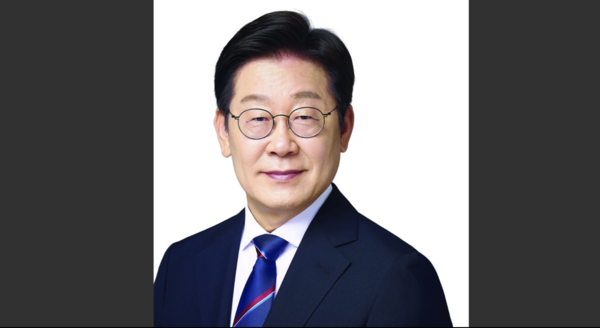New Initiatives Include AI Data centers, Medical Hubs, and Space Projects

President Lee Jae Myung, who is on a state visit to the United Arab Emirates (UAE), announced on Nov. 18 (local time) that cooperation between Korea and the UAE would be expanded from the four pillars of investment, defense, nuclear power, and energy to future-oriented fields such as artificial intelligence (AI), advanced technology, healthcare, and culture. Regarding cooperation plans in these areas, Lee emphasized that “As a leading global producer of memory chips in the semiconductor supply chain, Korea is a strategic partner capable of providing advanced AI-memory chips the UAE needs.”
In an interview with UAE state daily Aletihad published on Nov. 18, President Lee revealed that he had reached agreement on this direction with President Mohamed bin Zayed Al Nahyan. Lee evaluated that bilateral relations had developed beyond traditional economic cooperation into a “comprehensive special partnership” based on trust and common will. Regarding his choice of the UAE as the first destination of his first Middle East tour since taking office last June, Lee explained that it demonstrated the Korean government’s will to deepen and develop bilateral relations.
Mentioning that the UAE has designated the AI sector as a national strategic industry since 2017 and is pursuing the “National Strategy for Artificial Intelligence 2031,” Lee expressed confidence that collaboration with Korea is essential. Lee said, “The UAE has set a strategic goal to enhance its national competitiveness and become a global hub for AI by integrating AI across all industrial sectors,” adding, “Innovative Korean startups, such as Rebellions and FuriosaAI, have strong potential to serve as alternative suppliers, and we look forward to creating synergies as these capabilities align with the UAE’s future strategy.” He continued, “Korea’s strengths span the entire semiconductor value chain – from materials and components to equipment and R&D,” and “Korea therefore has the capacity to meet the UAE’s requirements for developing its semiconductor ecosystem and strengthening its competitiveness in advanced industries.”
Lee also said, “We discussed specific cooperation plans including cooperation in nuclear fuel and maintenance for stable operation of the Barakah Nuclear Power Plant, establishment of AI data centers within the UAE, and establishment of Korean medical service hubs,” and “Korea is a global cultural powerhouse, and the UAE serves as the Middle East’s cultural and tourism hub, so I am confident that both countries can create strong synergy in the cultural field as well.”
He also emphasized strengthening space cooperation. Lee said, “We expect cooperation to evolve into more advanced joint participation in several areas, including joint development and utilization of satellites; establishment of ground infrastructure such as launch platforms and satellite navigation ground stations; and deep-space exploration, extending from the Moon all the way to Mars,” mentioning the “DubaiSat” developed through cooperation with Korea and UAE experts receiving education at KAIST as examples.
Regarding the energy sector including nuclear power, Lee said, “Both countries will open a new era of cooperation in the energy field.” He explained, “Global investment in small modular reactors (SMRs) is expected to exceed $670 billion by 2050,” and “Korea is now working to lay the groundwork for cooperation with the UAE on next-generation nuclear technologies, including SMRs, and for jointly entering nuclear-energy markets in third countries.”
He continued, “Energy transition centered on renewable energy and energy storage system cooperation combining the UAE’s abundant solar energy potential with Korea’s world-class battery technology will greatly strengthen both countries’ leadership in the eco-friendly new industry sector,” adding, “The Al Azban Solar Power Plant with participation from Korea Western Power and third-country joint renewable energy projects with participation from Korea Southeast Power and Masdar are strong exemplary cases of bilateral renewable energy cooperation.”
Regarding cultural, educational, and tourism exchanges, he evaluated the UAE as “the most important travel destination in the Middle East for Koreans” and announced plans to review measures to simplify entry procedures to Korea for the UAE. President Lee said, “The UAE has built deep trust as Korea’s only special strategic partner in the Middle East,” and “The UAE trusted Korea’s technology and safety to import four Korean-type nuclear reactors as the world’s first, and Korea has strengthened trust with the UAE through deployment of a total of 4 thousand troops over the past 15 years.” He continued, “This is evidence that both countries are developing into true partners who respect each other’s security and design a common future,” and “This will become the foundation for opening the ‘new 100 years’ of bilateral relations.”


